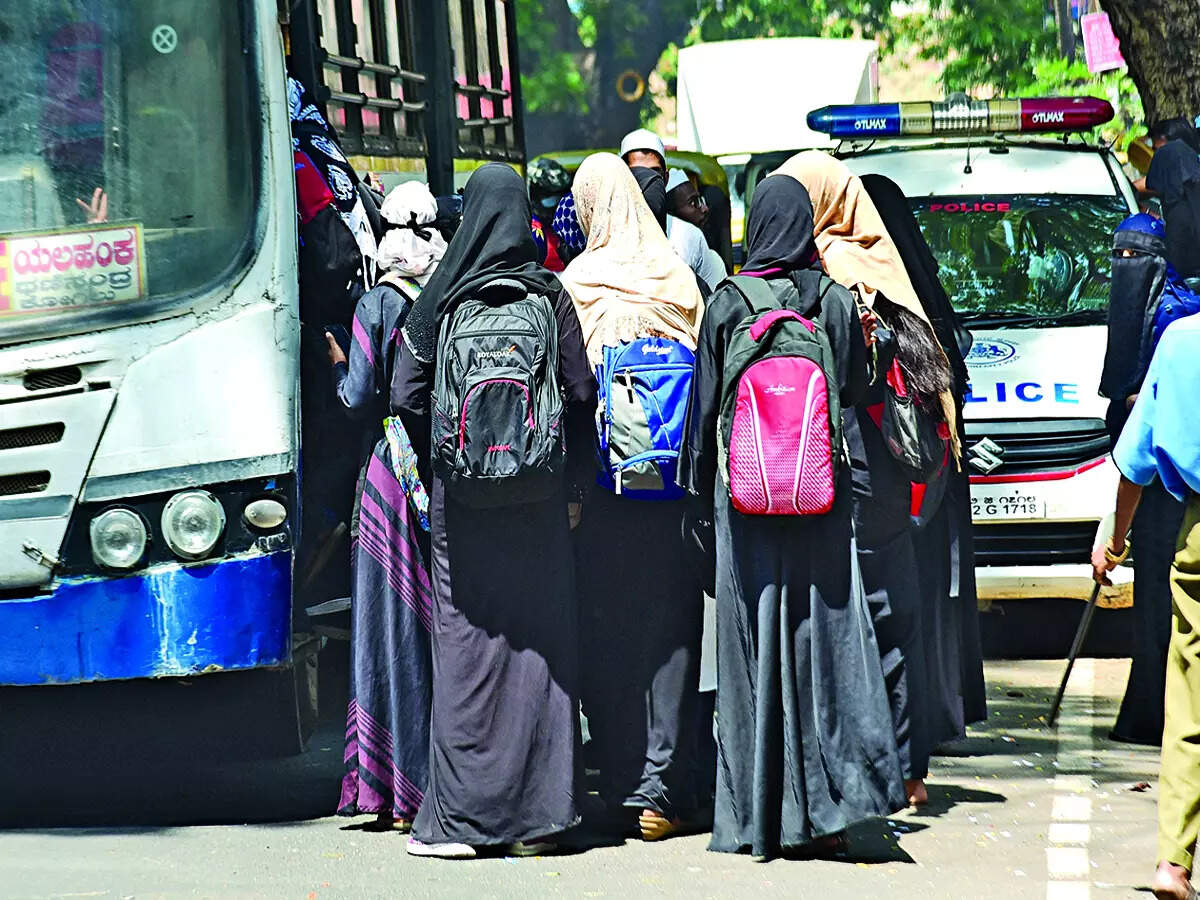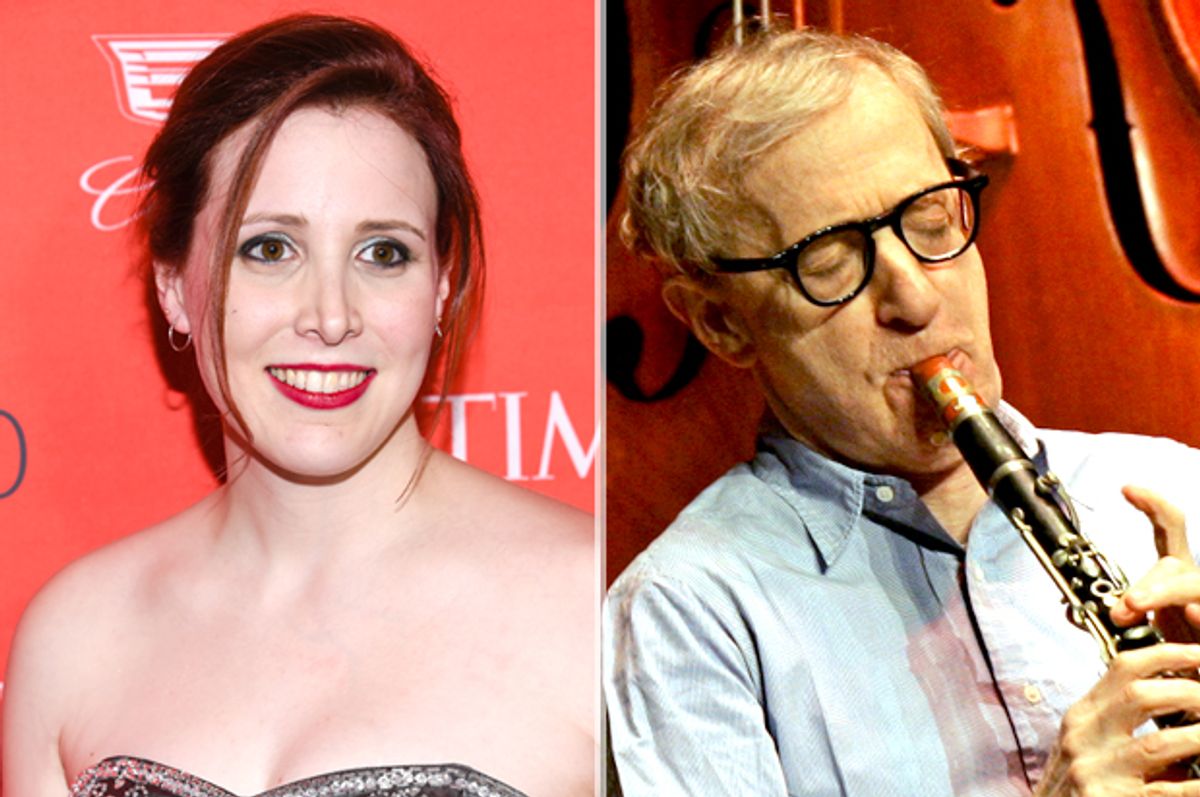Proposal To Ban Hijabs In Public For Under-15s Gains Traction In France

Table of Contents
Arguments in Favor of the Proposed Ban
Proponents of the ban on hijabs for girls under 15 in France base their arguments on several key pillars.
Protection of Minors
A central argument focuses on protecting minors from what some perceive as undue influence. It's argued that young girls may not fully grasp the implications of wearing a hijab, suggesting potential coercion from family members or religious communities.
- Lack of agency: Critics contend that young girls might lack the maturity to make informed decisions about religious practices, leading to the hijab becoming a symbol of imposed religious identity rather than personal choice.
- Pressure from religious institutions: Concerns exist regarding potential pressure from religious institutions or community elders to conform to specific religious norms, potentially restricting a child's development and freedom of expression.
- Impact on education and social integration: Some believe that wearing a hijab might hinder a girl's educational progress and social integration, potentially leading to isolation and discrimination within the school environment. While precise statistics on the number of girls wearing hijabs and their age demographics are difficult to obtain, anecdotal evidence and media reports highlight concerns about potential coercion.
Upholding Secularism (Laïcité)
The proposed ban is strongly defended as a means of upholding France's deeply ingrained principle of secularism, or laïcité. This principle emphasizes the separation of church and state, ensuring neutrality in public spaces.
- Separation of church and state: Supporters argue that the ban reinforces the crucial separation between religious and public life, preventing the potential dominance of religious symbols in public spaces.
- Maintaining neutrality in public spaces: The goal, proponents claim, is to maintain a neutral public sphere where all citizens feel equally welcome and represented, regardless of their religious beliefs.
- Preventing religious displays in schools: The ban aims to prevent potential religious displays in schools, ensuring a neutral learning environment for all students, in line with existing French laws promoting secular education. The 1905 law on the separation of churches and state and subsequent legislation form the legal foundation for this stance.
Preventing Social Isolation
A less frequently discussed argument suggests that a ban could paradoxically prevent social isolation. It's argued that some young Muslim girls might feel pressured to conform to religious norms, potentially leading to feelings of alienation if they deviate from expected behavior.
- Encouraging integration: Proponents argue that a ban could create a more level playing field, encouraging better integration among young girls of diverse backgrounds.
- Promoting acceptance: The aim, they claim, is to foster a climate of mutual understanding and acceptance, where religious practices are not seen as barriers to social interaction.
- Fostering a sense of belonging: By discouraging overt religious displays at a young age, the argument goes, the ban might create a sense of shared identity and belonging among all young girls, regardless of their religious beliefs. However, this perspective remains controversial and is not universally accepted.
Arguments Against the Proposed Ban
Opponents of the ban raise serious concerns about its potential impact on fundamental rights and societal harmony.
Infringement on Religious Freedom
The most significant criticism centers on the potential infringement on the fundamental right to religious freedom.
- Contravention of human rights principles: Critics argue that the ban violates international human rights conventions that guarantee freedom of religion and expression.
- Potential for discrimination: The ban is seen as potentially discriminatory, targeting a specific religious group and potentially fueling prejudice and intolerance.
- Restricting personal expression: Opponents highlight that wearing a hijab can be an important aspect of personal identity and religious expression, and the ban restricts this fundamental right. Relevant international human rights instruments, including the Universal Declaration of Human Rights, are often cited in this context.
Ineffectiveness and Potential for Backlash
Concerns also exist about the practical feasibility and potential unintended consequences of the ban.
- Difficulty in enforcement: Critics question how effectively such a ban could be enforced, suggesting that it might lead to increased tensions and resentment.
- Potential for increased radicalization: Some fear that the ban could unintentionally fuel feelings of alienation and marginalization, potentially contributing to increased radicalization among some segments of the Muslim community.
- Undermining community relations: The ban risks further damaging already strained community relations, exacerbating existing social divisions. Expert opinions and social science research often caution against the potential negative impacts of such bans.
Impact on Education and Social Integration
Contrary to the claim that a ban could improve integration, opponents argue it would likely have the opposite effect.
- Negative impact on school attendance: A ban could lead to increased absenteeism among girls from religious families who might choose to keep their daughters at home rather than have them comply with the ban.
- Increased social marginalization: The ban could increase social stigmatization and marginalization of young Muslim girls, making it harder for them to integrate into mainstream society.
- Hindering educational attainment: This exclusion could significantly affect girls’ educational opportunities and long-term prospects. Examples from other countries with similar restrictions often highlight the negative consequences for educational attainment and social integration.
Public Opinion and Political Reactions
Public opinion on the proposed ban is deeply divided, reflecting the complex and sensitive nature of the issue. Recent polls show a significant discrepancy in opinions across different demographics and political affiliations. Political reactions are similarly divided, with some parties strongly supporting the proposal and others vehemently opposing it. The debate is far from settled and is likely to remain a significant feature of French politics for some time. The discussion includes keywords like "French Politics," "Public Opinion," and "Political Debate" to reflect the multifaceted nature of the responses.
Conclusion
The debate surrounding a potential Ban Hijabs France Under-15s highlights a crucial intersection of religious freedom, secular values, and the rights of minors. Arguments in favor emphasize the protection of minors, upholding laïcité, and preventing social isolation, while arguments against cite infringement on religious freedom, potential ineffectiveness, and negative impacts on education and integration. The complexity of the issue demands careful consideration of all perspectives to navigate these sensitive concerns effectively. Further discussion and thoughtful consideration are vital. Learn more about the ongoing debate surrounding the Ban Hijabs France Under-15s proposal and share your informed opinion.

Featured Posts
-
 Chetyre Vozmozhnykh Pobeditelya Evrovideniya 2025 Po Versii Konchity Vurst
May 25, 2025
Chetyre Vozmozhnykh Pobeditelya Evrovideniya 2025 Po Versii Konchity Vurst
May 25, 2025 -
 Planning Your Memorial Day Trip Avoid These Busy Travel Days In 2025
May 25, 2025
Planning Your Memorial Day Trip Avoid These Busy Travel Days In 2025
May 25, 2025 -
 Kapitaalmarkt Rentestijging En De Euro Dollar Wisselkoers
May 25, 2025
Kapitaalmarkt Rentestijging En De Euro Dollar Wisselkoers
May 25, 2025 -
 Building Bridges Best Of Bangladesh In Europes Second Edition On Collaboration
May 25, 2025
Building Bridges Best Of Bangladesh In Europes Second Edition On Collaboration
May 25, 2025 -
 How To Interpret The Net Asset Value Nav Of Amundi Msci World Ii Ucits Etf Usd Hedged Dist
May 25, 2025
How To Interpret The Net Asset Value Nav Of Amundi Msci World Ii Ucits Etf Usd Hedged Dist
May 25, 2025
Latest Posts
-
 Analysis Of Sean Penns Stance On Dylan Farrows Accusations Against Woody Allen
May 25, 2025
Analysis Of Sean Penns Stance On Dylan Farrows Accusations Against Woody Allen
May 25, 2025 -
 The Sean Penn Woody Allen Dylan Farrow Controversy A Deeper Look
May 25, 2025
The Sean Penn Woody Allen Dylan Farrow Controversy A Deeper Look
May 25, 2025 -
 Woody Allen Sexual Assault Allegations Sean Penns Doubts
May 25, 2025
Woody Allen Sexual Assault Allegations Sean Penns Doubts
May 25, 2025 -
 Understanding Frank Sinatras Four Marriages Wives Love And Legacy
May 25, 2025
Understanding Frank Sinatras Four Marriages Wives Love And Legacy
May 25, 2025 -
 Sean Penns Response To Dylan Farrows Sexual Assault Claims Against Woody Allen
May 25, 2025
Sean Penns Response To Dylan Farrows Sexual Assault Claims Against Woody Allen
May 25, 2025
